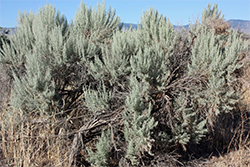The new NSF EPSCoR research program seeks to understand how genetic diversity and phenotypic plasticity affect species response to environmental change, shaping both population response and adaptive capacity. Two focal taxa will be under study: one aquatic (redband trout) and one terrestrial (sagebrush). These taxa are integral to ecosystems in the American West, and are central to land-use management decisions that drive the economy of the region.

Redband Trout

Sagebrush
Linking Genome to Phenome to Predict Adaptive Responses of Organisms to Changing Landscapes
Research Infrastructure Improvement Track-1 Award (2018-2023)
This award will advance fundamental knowledge on the mechanisms that rule genome to phenome pathways to predict how species adapt to external stressors and a changing environment. It will help translate this knowledge into evidenced-based resource management policies and practices for more adaptive and resilient species and landscapes.
Idaho's approach is through Genes to Environment: Modeling, Mechanisms, and Mapping (GEM3). This statewide project combines research strengths in bioinformatics, complex modeling, ecology, fisheries science, genomics, geospatial science, remote sensing, and social-ecological systems (SES) science to contribute to one of the most compelling and contemporary national challenges of our time – understanding the "Rules of Life: predicting phenotypes from what we know about the genome and environment".
